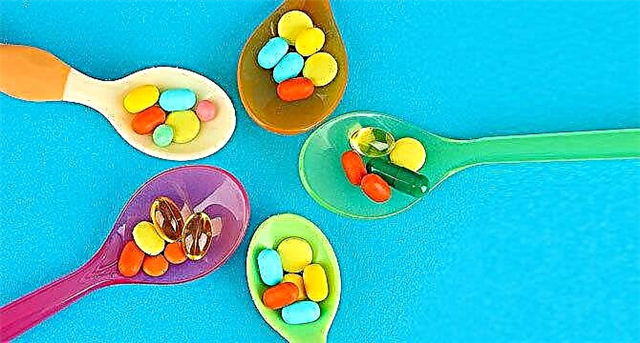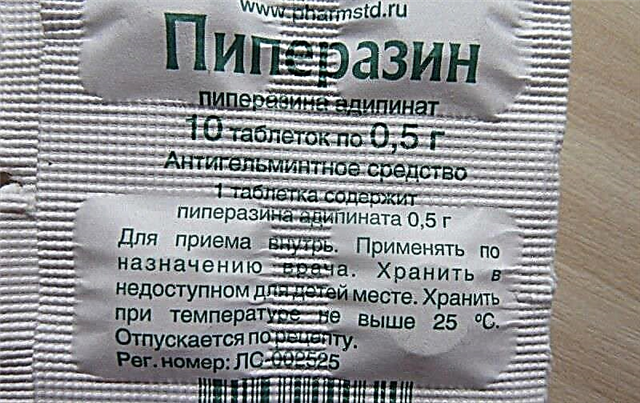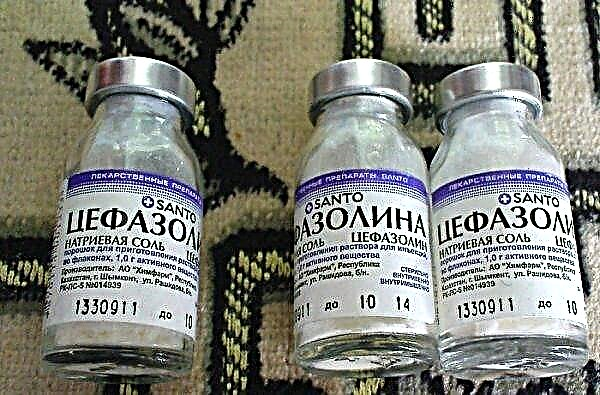Diarrhea in a small child provokes an outburst of panic in parents, and also causes a lot of inconvenience to the baby himself. If diarrhea is accompanied by a fever, then this is a dangerous symptom that may indicate that some kind of infection has entered the small body.

The child has diarrhea
How to help and what to do
If the child has diarrhea and fever, then the parents are obliged to take all the necessary measures as soon as possible to prevent the deterioration of the baby's condition. With loose and frequent stools, the child loses a lot of fluid, and this is fraught with dehydration of the whole body. To prevent this condition, it is necessary to water the baby with oral rehydration solution as often as possible.
If the body temperature rises above 38 degrees, give the child Paracetamol in the form of a syrup. For children up to six months, you can use candles. Also, you should immediately call the local pediatrician at home. He will examine the baby and advise which adsorbents should be used. You may need to do a gastric lavage. Such actions will help restore normal body temperature and rid the intestines of toxins and their breakdown products.
Additional Information. Infectious and non-infectious diseases very often have similar symptoms, at a time when they need to be treated using different methods. It is not recommended to treat an infant without consulting a pediatrician, as this can lead to undesirable consequences.

The diaper is changed for the child
How to identify the cause of diarrhea
Diarrhea and fever in a child can occur due to infectious or non-infectious causes. The reasons related to the second group very rarely pose a threat to the health of the child, they are quite simple to eliminate. The reasons associated with the presence of infection in the body are very dangerous and require surgical treatment.
Infectious factors
If the child has a high fever and diarrhea, then the mother should immediately suspect that the cause of this may be an infectious disease. To find out the cause as early as possible, you need to know the main symptoms.
A high temperature and loose stools in a child may appear due to such violations:
- Rotavirus infection;
- Flu;
- Inflammation of the middle ear;
- Tonsillitis;
- Enterovirus;
- Rhinopharyngitis;
- Dysentery;
- Salmonellosis.
Also, the causes of such manifestations can be dangerous diseases: measles, rubella or scarlet fever. In some situations, it is possible to suspect an infection that has entered the body by certain signs that have appeared in the baby. With rotavirus infection and enterovirus, the following symptoms may appear:
- Frequent very loose stools - more than 20 times a day;
- Very unpleasant odor of stool;
- The feces are green.
If Escherichia coli, dysentery or salmonellosis has entered the baby's body, then you can notice the following additional symptoms:
- The body temperature rises very sharply - more than 38.5-39 degrees;
- In the feces, you can notice admixtures of mucus;
- The stool gives off a very offensive odor;
- The feces have a marsh green hue.
Important! If an infant has all the signs of an intestinal infection, then there is a high likelihood of diarrhea mixed with blood. In this case, you must first seek medical help.

Dirty diaper
Non-infectious factors
Physiological causes of fever up to 37 degrees and diarrhea:
- The baby is teething. A characteristic feature of this pathology is that the symptoms subside two days after their onset. The crumbs have normal stools, and the temperature drops to normal levels.
- The child has a temperature of 37.5 and diarrhea - the toddler was taking medications. In addition to diarrhea and fever, rashes, itching, coughing, and vomiting may appear as a reaction to the drug.
- Parents greatly overfeed their one-year-old child. A large amount of food, including mother's milk, can cause dyspepsia. It is characterized by an increase in temperature and various stool disorders.
- Violation of the diet of a nursing mother. The foods that the mother eats have a direct impact on the composition of the milk. The pickles, smoked meats and spicy dishes eaten by the mother will lead to upset stomach and intestines in a six-month-old child.
- Incorrect introduction of complementary foods. Before six months, the child should not be given fresh vegetables and fruits, since due to the insufficient amount of enzymes, the small body is not yet able to digest them.
- The child was stressed. Stressful loads and experiences provoke spasms in the intestines and lead to the fact that the child begins to vilify. With prolonged emotional overload, temperature readings can increase.
Pathological factors
Common pathologies that may be accompanied by diarrhea and high fever include:
- Food poisoning. When eating low-quality foods, damage to the digestive organs can occur. In this case, the temperature can rise to 38.5-39 degrees. The baby is very weak.
- Various pathologies of the gastrointestinal tract. Some of them are congenital, others - the baby acquires during life. The most common reason for stool problems is dysbiosis. Its development is manifested by a violation of the microflora in the intestine.
- Acetonemic syndrome. The reasons are insufficient amount of carbohydrates in the body, increased food load and stress. The specific smell of acetone from the mouth will help to identify the pathology. Even the baby may have an intestinal disorder and a fever.

Baby feces in a diaper
First aid
To avoid dehydration and alleviate the baby's condition, parents should take such effective measures:
- Call a pediatrician at home;
- Do not panic, as panic will negatively affect the child;
- Do not give the baby any antibiotics;
- Examine the baby very carefully for other symptoms. This can understand why this situation happened;
- Until the doctor arrives, do not bring down the temperature, but only if it does not rise above 38 degrees;
- If the doctor has to wait a long time, and the child is very bad, then it is necessary to give the baby an antipyretic. Better if it is Paracetamol or Ibuprofen syrup. For children under one year old, it is better to use candles;
- The kid can be given activated carbon, Enterosgel or Smect.
You can make your own rehydration solution to avoid severe dehydration. To prepare it, you need to take one liter of boiling water, add 1 tbsp. spoon of sugar, 1 teaspoon of salt, ½ teaspoon of baking soda. Give such a solution to the baby every 5 minutes, one teaspoon. This will help to avoid dehydration and improve the condition of the baby.

Baby in the arms of the doctor
Treatment methods
If such unpleasant signs as diarrhea and high fever appear, then the doctor may prescribe therapy for the underlying pathology, which caused such a clinical picture. Along with therapy, as a rule, symptomatic treatment is carried out, which will be aimed at preventing dehydration and improving the functioning of the stomach.
Treatment with drugs
To eliminate pathology, as a rule, the following means are used:
- Sorbents. They are used to eliminate stool disorders. The most effective are Smecta, Polyphepan, Enterosgel.
- Gastric lavage. To do this, use boiled water or a weak solution of potassium permanganate.
- Oral rehydration agents. They are used to replenish body fluids. The child is given a salt solution, Regidron, mineral water, compote and glucose solution.
- Antipyretic drugs. If the temperature rises above 38.5 degrees, the child is given Paracetamol in the form of a syrup.
- Antibiotics. Such drugs are used only in very difficult situations if blood clots have been found in the feces. Usually doctors prescribe cephalosporins or fluoroquinolones to infants.
- Lacto, - and bifidobacteria. These funds are used to normalize the intestinal microflora.
Note! It is impossible to give a child any medicines without a doctor's prescription. Not knowing what disease you will have to deal with, you can only worsen the baby's condition.

Child drinks water
Folk remedies
The most proven traditional methods of treatment that help alleviate the child's condition include the use of pomegranate juice, water with the addition of lemon juice, fresh or dried blueberries, starch dissolved in water, jelly, mint tea, infusion of chamomile and calendula flowers, rice water or liquid rice porridge, carrot puree.
When a baby has diarrhea and a temperature of 38 degrees and above, these folk remedies will help relieve inflammation, reduce pain in the abdomen and make up for the lack of nutrients in the baby's body. Further recipes for the preparation of folk remedies that will help with diarrhea and fever.
Starch solution
You can prepare this tool in this way: 1 tsp. dilute starch in half a glass of warm boiled water. You can also cook jelly with cranberries. Give the child one glass to drink three times a day.
Rice decoction
You can prepare the broth as follows: pour 1 glass of rice with 6-7 glasses of water, put on a small fire and boil. The finished product must be cooled, filtered and given to the child 1/3 cup every two hours.
Infusion of dried pomegranate skin
You can make an infusion in this way: pour 1 teaspoon of dried pomegranate skins with 1 glass of water. Boil for 10-15 minutes, insist, wrapped in a towel, 2 hours, drain. As a treatment, you need to give the child 1 teaspoon every three hours.
If the baby has a high fever and diarrhea, then breastfeeding should not be stopped, but during the period when the baby is diarrhea, it is better not to give the baby a breast. If the baby eats only artificial formula, then it is better to give him soy formula until he fully recovers.
If a child has diarrhea accompanied by a high fever, then parents should not sit and wait until everything goes away by itself. The sooner the cause that caused the problem is identified, the more effective the assistance will be.



